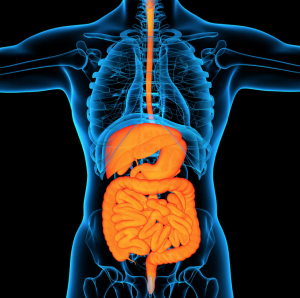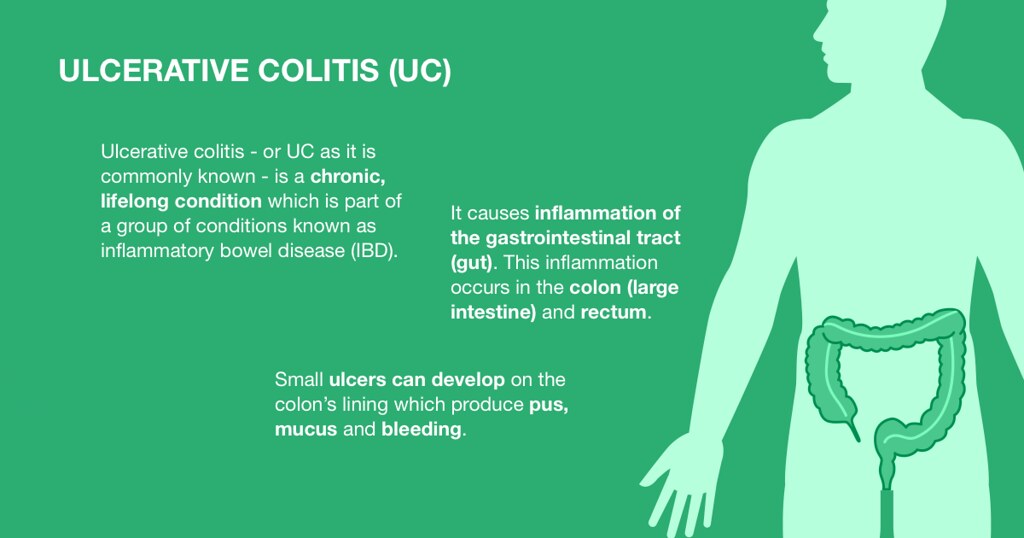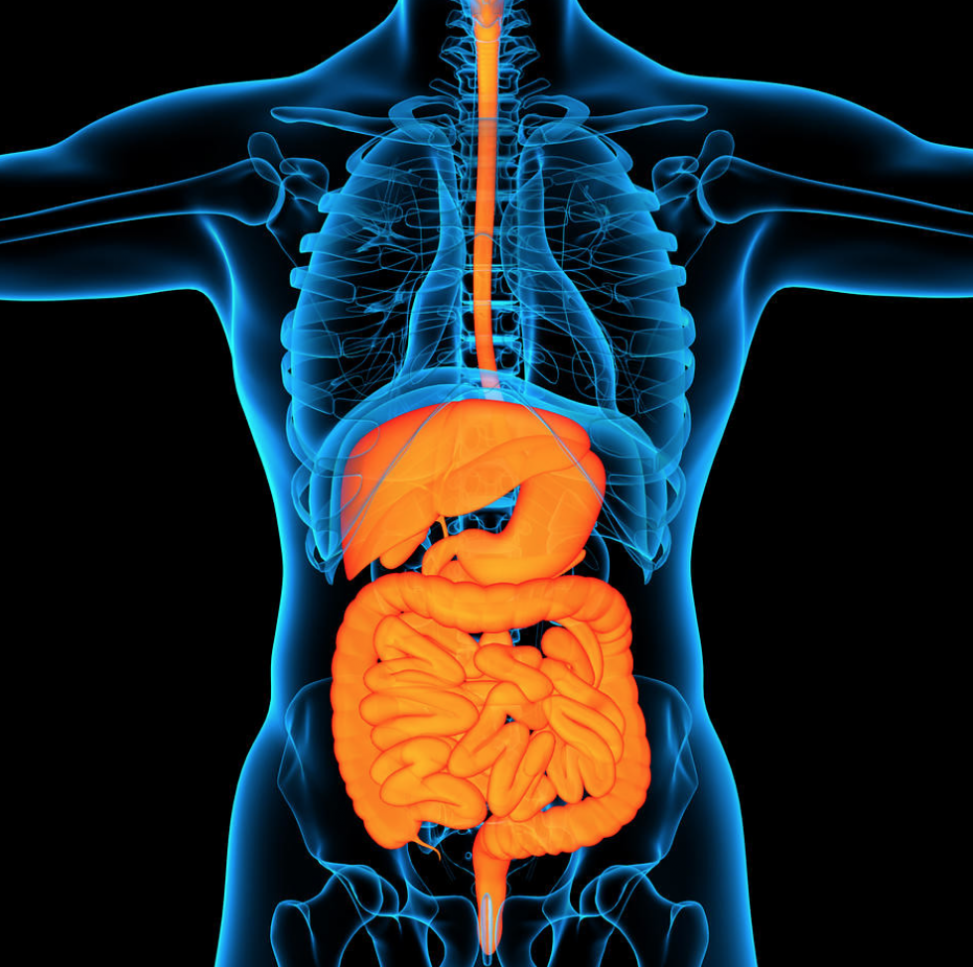
Internal organ system retrieved from Flickr
Irish Doctors came together to conduct research on modern surgery approaches for ulcerative colitis (UC), hoping to determine the best methods to decrease patient risk and increase their quality of life. UC is a chronic inflammatory disorder in the colon and rectum, infecting about 15 people per 100,000 people per year. Keep in mind, this incident rate is for developing countries such as the United Kingdom or North America, and has no reflection of the incident rate in less developed countries.
The disorder results from an immune response overstressing the attack against the bacteria that live in the digestive tract, and are caused by both environmental and genetic influences, usually a combination of the two. Although there are ways to treat the infection when it is non-emergent,
up to 10% of patients presenting with an acute episode of ulcerative colitis requiring hospital admission will have an emergency operation.
This causes great stress for doctors, patients and loved ones, which is why these researchers wanted to research and present the most common and/or the most effective approaches in both non-emergent and emergent situations.

Basic facts about UC
The researchers, and most of the healthcare community classify surgery for UC into three categories, elective, urgent and emergency surgery. Elective surgery is offered as a choice for the patient before the disorder becomes an emergent situation. Elective surgeries treat for disease refractory, otherwise known as a disease that is unresponsive to non-surgical treatment, or for cells that are progressing towards becoming a tumour. Urgent or emergent surgery is usually required during a hospital stay if patients are not responding to medication, are getting progressively unwell or present signs of haemorrhage.
The decision of what operation to conduct has a variety of factors that influence which surgical treatment is best fit, such as the patients’ choice, the progression of the disease and the surgeon appointed to the case.
The first factor that is considered when deciding is the patients current clinical condition, once this has narrowed down the choices the doctor must deliberate the patient’s own preferences. In doing the second task, doctors must ensure there is appropriate counselling for the patient to be presented with each option and the risks/possible outcomes for each. Once this is done, the surgeon and their team, must reflect on their own training, experience and previous practice bearing in mind the procedure that needs to be conducted.
Given this process of deciding which operation should be done, the researchers concluded that more modern techniques were used in the elective category, and for urgent or emergent situations, there is one surgery that tends to be favoured; a subtotal colectomy with end ileostomy and rectal stump.
Although there are many operational choices, the most difficult decision for doctors to make is the timing on the surgery. In some situations, such as emergent or urgent cases, an immediate surgery is clear, however for more

Retrieved from Flickr
elective cases the timing is challenging. There is a tough balance between giving the patients sufficient time with medical therapy to assess their response, however postponing too long poses a risk to the patient, as too much delay has been directly associated with post-operative complications, including infections, and a longer hospital stay.
There are many operations and decisions to make when it comes to UC, which cause a lot of stress on families, doctors and patients given that quality of life is usually impacted considering the location of the disorder. However, doctor training and research have been able to find a successful but difficult balance between patients being aware of their options, and the sense of emergency that time has with this disease.
Source:
Murphy, B., Kavanagh, D.O. & Winter, D.C. Modern surgery for ulcerative colitis. Updates Surg (2020). https://doi.org/10.1007/s13304-020-00719-4

Alex
"This title was very eye catching! That is so interesting that such a ..."
Alex
"This is really interesting! The fact that crops and plants are damaged is ..."
Alex
"Well done, this article is great and the information is very captivating! Ethics ..."
Alex
"I was intrigued throughout the whole article! This is such an interesting topic, ..."
Alex
"This is such an interesting article, and very relevant!! Great job at explaining ..."
Grandpa
"Honey You Did a good job I will forward to my eye doctor "
murphymv
"This article is fascinating because it delves into the details of the research ..."
murphymv
"I agree, adding the photo helped solidify the main finding. "
murphymv
"This is a fascinating finding. I hope this innovative approach to improving transplants ..."
Sherzilla
"This is a great article! I would really love to hear how exactly ..."
Sherzilla
"It's disappointment that these treatments were not very effective but hopefully other researchers ..."
Sherzilla
"I agree with your idea that we need to shift our focus to ..."
Sherzilla
"It's amazing to see how such an everyday household product such as ..."
Lauren Kageler
"I will be interested to see what the data looks like from the ..."
Lauren Kageler
"A very interesting article that emphasizes one of the many benefits that the ..."
maricha
"Great post! I had known about the plight of Little Browns, but I ..."
Sherzilla
"I assumed cancer patients were more at risk to the virus but I ..."
Sherzilla
"Great article! It sheds light on a topic that everyone is curious about. ..."
maricha
"This article is full of really important and relevant information! I really liked ..."
maricha
"Definitely a very newsworthy article! Nice job explaining the structure of the virus ..."
maricha
"It's interesting to think that humans aren't only species dealing with the global ..."
murphymv
"This is very interesting and well explained. I am not too familiar with ..."
Lauren Kageler
"Great article! This post is sure to be a useful resource for any ..."
Lauren Kageler
"Definitely seems like an odd pairing at first, but any step forward in ..."
murphymv
"What an interesting article! As you say, height and dementia seem unrelated at ..."
murphymv
"Great article! I learned several new methods of wildlife tracking. This seems like ..."
murphymv
"Very interesting topic! You explained cascade testing and its importance very well. I ..."
Alex
"This article is really interesting! What got me hooked right away was the ..."
Sabrina
"I found this article super interesting! It’s crazy how everyday products can cause ..."
Erin Heeschen
"I love the layout of this article; it's very eyecatching! The advancements of prosthetics ..."
murphymv
"Awesome article! I like the personality in the writing. Flash Graphene not only ..."
murphymv
"Very interesting work! I don't know a whole lot about genetics, but this ..."
Cami Meckley
"I think the idea of using virtual reality technology to better help prepare ..."
Erin Heeschen
"I wonder if there's a connection between tourist season and wildfires in the ..."
Ralph berezan
"Not bad Good work "
Michelle
"This sounds like it would be a great tool for medical students! ..."